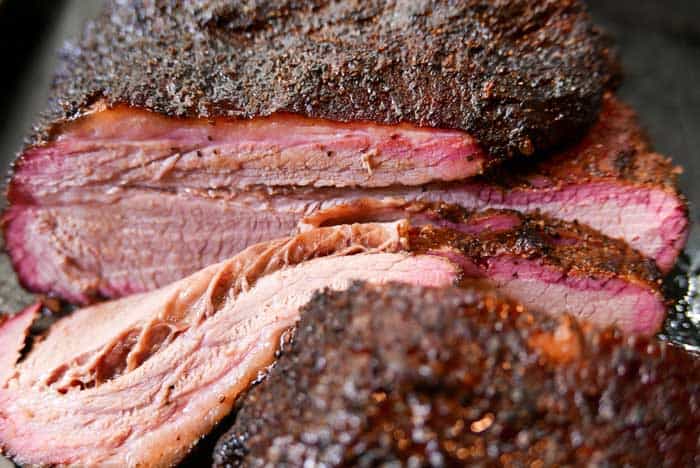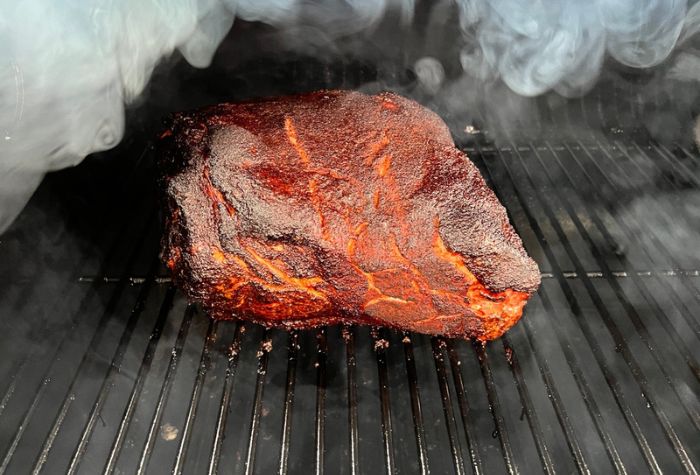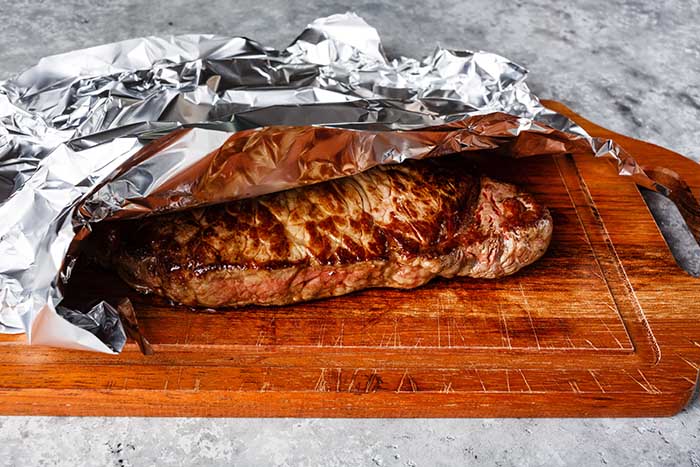From sauces to seasonings, elevate your barbecue game with our all-time favorite staple ingredients.
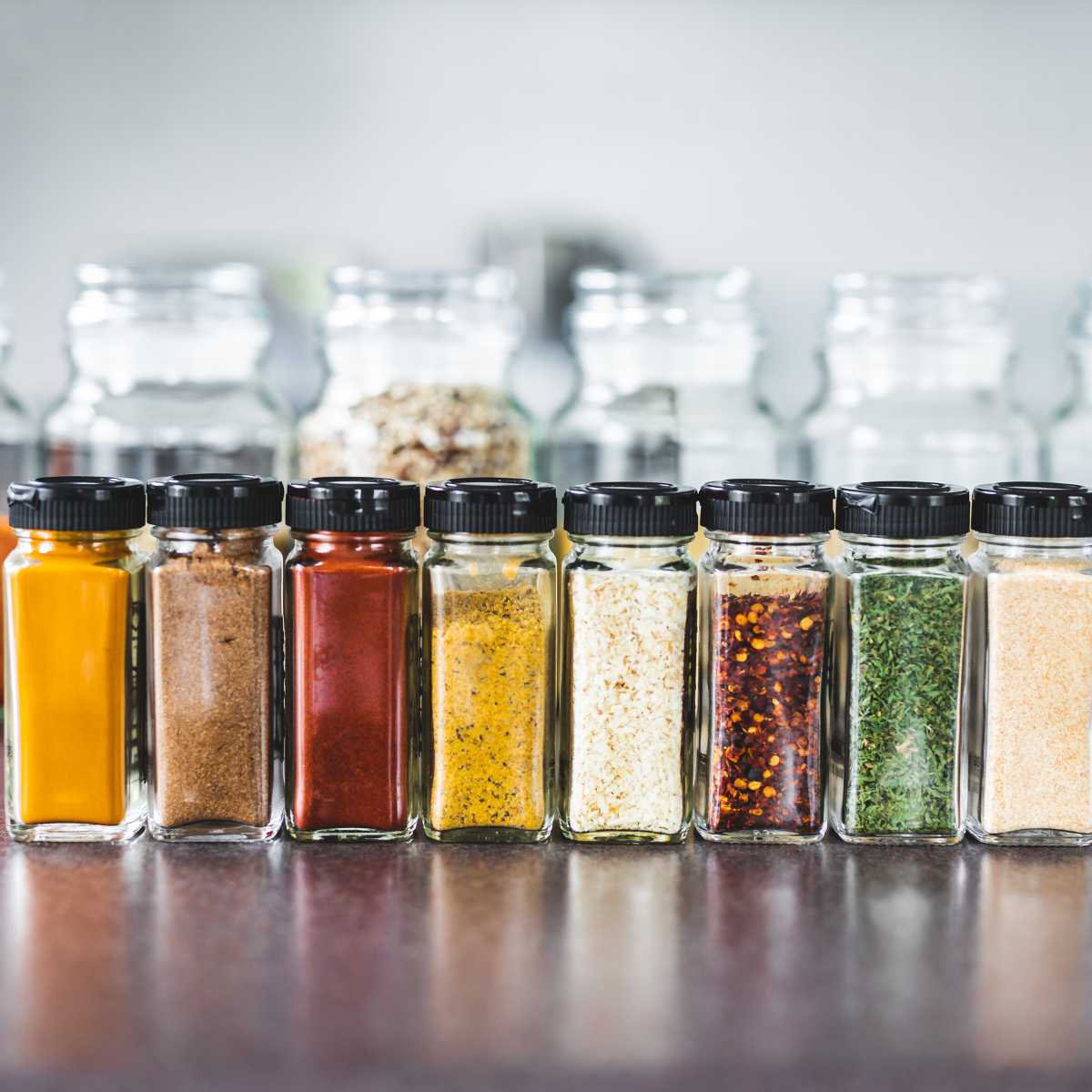
A well-stocked pantry can make all the difference in speeding up your cooking process and taking your smoked and grilled meat to the next level. Sure, you might not be running a pro kitchen, but keeping a solid stock of these essential pantry items will make all the difference for your barbecue meat prep and save you a last-minute dash to the store.
Starting with the most basic everyday items and moving on to more underappreciated (but just as important) ingredients, these continue to be my go-to items to this day.
Salt
A fundamental ingredient in (probably) all of the world’s cuisines, salt brings out the best flavors in food. In the case of barbecue, it’ll make meat taste meatier while tempering unwanted bitter flavors.
When preparing meat for barbecue, applying salt in the form of a dry brine can help draw out moisture and break down muscle fibers, giving you tender meat that’s simply far more pleasant to eat.
But take note: Not just any type of salt here will do. We want coarse salt, such as kosher or sea salt.
Why do we want coarse salt granules? First of all, coarse granules are better at adhering to the surface of meat, while their large size means they dissolve more slowly, thereby releasing more flavor. Plus, the large granule sizes are easier to handle, making it easier to avoid over-salting your food.
Black Pepper
For that signature earthy flavor and sharp taste, coarse black pepper is a beloved ingredient for many barbecue recipes. Apart from bringing a boost of complexity to the taste of food, coarse black pepper can coat the outside of the meat when on the grill, which adds some textural contrast.
Unlike finely ground black pepper, you’ll want to opt for freshly ground coarse black pepper if possible. While it may not seem like much of a difference, this results in a stronger and more pronounced peppery flavor, which pairs perfectly with the smoky notes from the barbecue.
Coat your meat with it and sear it on the grill for a delicious peppery crust, or freshly grind some over the top before serving.
Canola Oil
Whenever you barbecue, you’ll want to choose an oil with a high smoke point so it doesn’t make your food smell or taste overly smoky and rancid. Like avocado oil and peanut oil, canola oil has a high smoke point. But unlike the others, it’s relatively neutral in flavor.
Coat the entire cooking surface of your grill with a generous amount of canola oil before placing the meat and vegetables on. You can also add it to marinades.
Brown Sugar
Unlike regular white sugar, brown sugar contains molasses—which imparts a deliciously rich color and deep flavor. When brown sugar is added to meat rubs and marinades, it adds extra moisture and some caramelization to the meat, which is a match made in heaven once the extra salt and spices are included.
Add it in marinades or directly rub it onto the surface of meat before smoking.
Spices
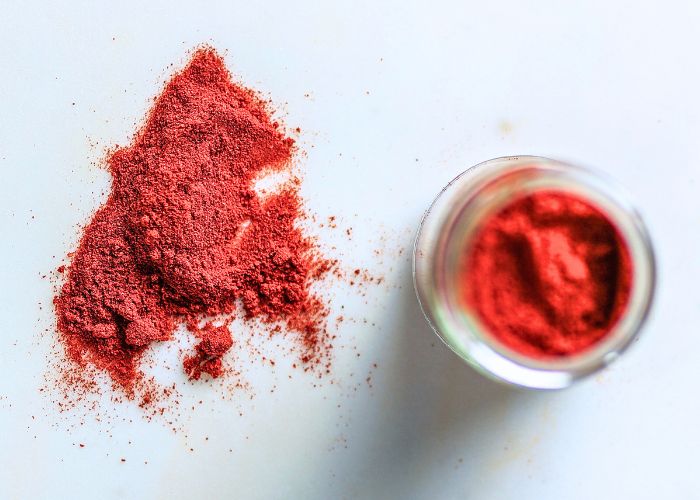
The spices you have in your pantry can vary depending on the exact flavor profile you like. Common spices loved by many barbecue enthusiasts include paprika, chili pepper, garlic powder, cayenne pepper, celery salt, and more. You can purchase premixed barbecue spice blends in the grocery store, but there’s nothing quite like a fresh homemade blend of all your favorites.
Mix spices together for a dry rub or add them in marinades and sauces.
Herbs

Both dried and fresh herbs taste excellent alongside spices and other seasonings. They can also lean into the deep umami notes in different types of meats. For example, rosemary and thyme bring out the natural sweetness in pork, while oregano and basil taste delicious with chicken.
Dried herbs work perfectly in a dry rub. Fresh herbs can be bunched into sprigs and placed directly on the grill, chopped up in marinades, or even served alongside the grilled meats and veggies to amp up the food presentation.
Apple Cider Vinegar
If you’ve ever smoked meat on a barbecue before, you’ll know just how important it is to keep the meat moist for maximum flavor impact. Adding apple cider vinegar to smoked meat increases moisture level on the surface for a better smoking process and balances out the richness of the meat with some much-needed acidity.
Add in apple cider vinegar with water or apple juice in a 1:1 ratio and periodically spritz it during the smoking process. You can also add some apple cider vinegar into marinades to help tenderize the meat.
Citrus
The tartness and acidity in natural citrus fruits are a great way to add some much-needed zing to a lot of barbecue food, particularly when cutting through rich and fattier meats.
The juice from citrus fruits like lime or orange goes great on grilled meat fresh off the grill, while the same juice – as well as the zest – from the same fruits work great in marinades thanks to its acid, which helps to break down and tenderize the proteins in most meats.
Fermented Foods
While it may seem strange to see fermented foods like sauerkraut and kimchi on this list, the zing and intensity of these foods add deliciousness to barbecue classics like sausages and pork chops, or as burger and sandwich toppings.
Because of the long fermentation time needed for each of these (we’re talking weeks, not hours), the easiest thing to do is to buy premade versions from the store. However, if you have the patience I strongly recommend making your own sauerkraut from scratch. See our easy homemade sauerkraut recipe here.
Garlic
A fundamental ingredient in so many of the world’s best cuisines, garlic adds deep flavors to barbecue meat that can balance out the sugars and spice from other ingredients. This is best described as ‘umami’, which in essence is the taste of glutamate salts, which naturally accentuates the flavors of smoked and grilled meats.
I would aim to get garlic in both powder and fresh form since they’re each suited to very different uses. Garlic powder is best used in homemade dry rub blends, while minced fresh garlic cloves are better for homemade marinades and sauces.
For a little added smokiness, try making your own smoked garlic. Remove the outer crepey layer of the garlic, cut off the top head section to expose the cloves, cover in tinfoil, and place the bulb on the grill for 30–40 minutes. Then, squeeze the garlic from the cloves and add it to your homemade sauces, purees, or homemade garlic bread.
Hot Sauce
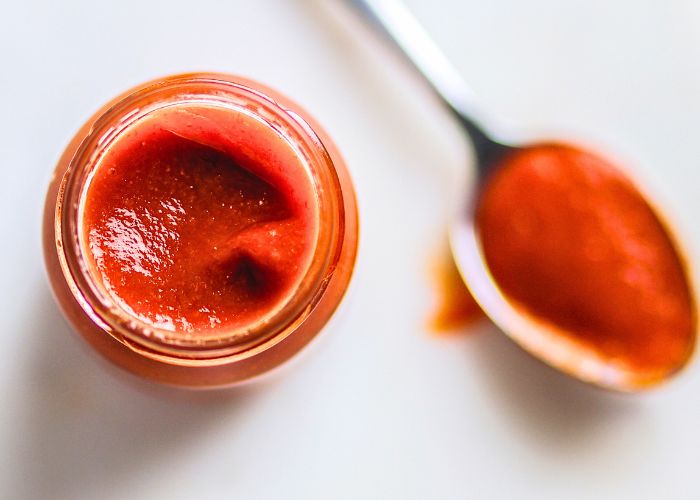
Bring the heat with some hot sauce. Whether you’re a fan of Frank’s Red Hot, Sriracha, or Cholula, adding hot sauce to your barbecue marinades can warm you up from the inside out.
Add it to marinades or as toppings for freshly smoked or grilled meat. Hot sauce is also great as a binder for when you apply a dry rub to your meat.
Not sure where to start? See our homemade sauce recipes to get started.
Yellow Mustard

Yellow mustard is another common binder used for ribs and other kinds of meats before smoking. The thickness of mustard paired with its vinegar adds acidity and helps the spices and herbs stay on throughout the whole smoking process—and interestingly, you won’t be able to taste it once it’s cooked off.
To use it as a binder, simply apply a generous amount to the meat before adding the rub. Make sure you pat dry the meat surface with paper towels first to help the mustard adhere.
Worcestershire Sauce
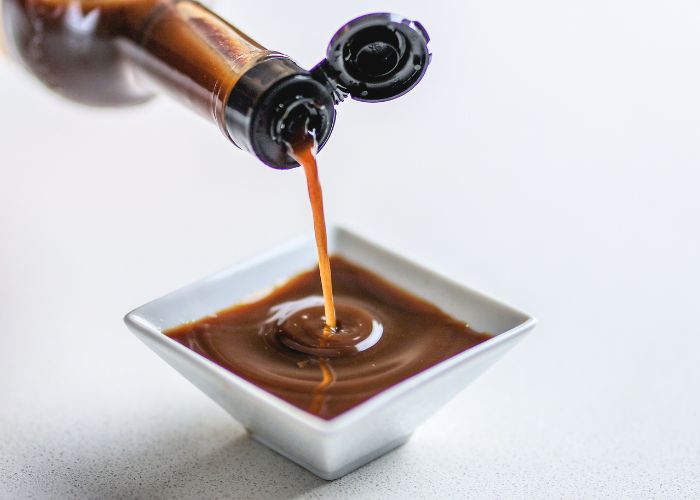
With a powerful umami flavor thanks to the addition of anchovies, tamarind, and vinegar, Worcestershire sauce helps break down fat in meat, combats richness with its acidity and tastes incredible served on top of grilled mushrooms or onions.
Mix it into your binder before applying the dry rub or incorporate it into marinades.
Stocks & Broths
If you’ve ever wondered how smokehouse brisket ends up being so incredibly juicy, injection marinades containing stocks and broths are your answer. Injecting works like you’re marinating the meat from the inside, helping to break down the muscle fibers through the meat and give you a juicier slab of food.
For our brisket injection marinade we use simple beef stock, but you can use vegetable stock too. If you injecting chicken or turkey, try to match the meat with the appropriate broth by using chicken stock.







